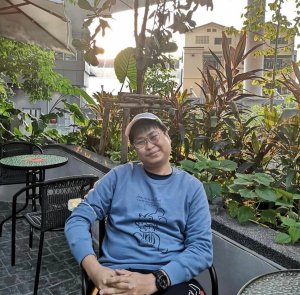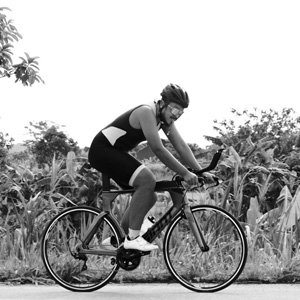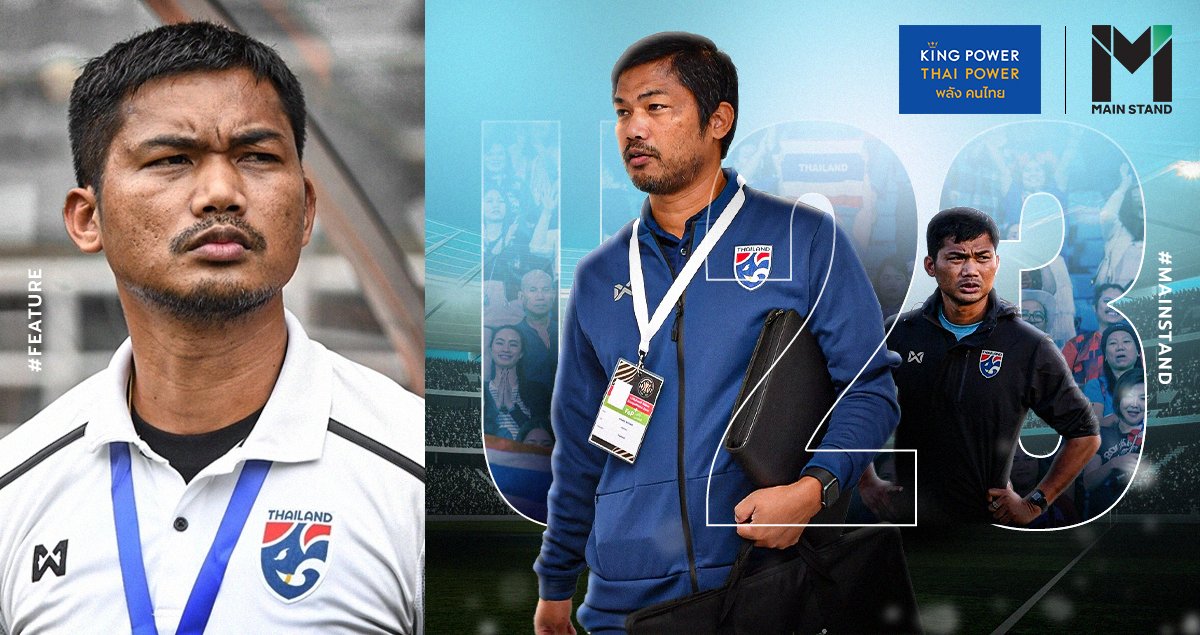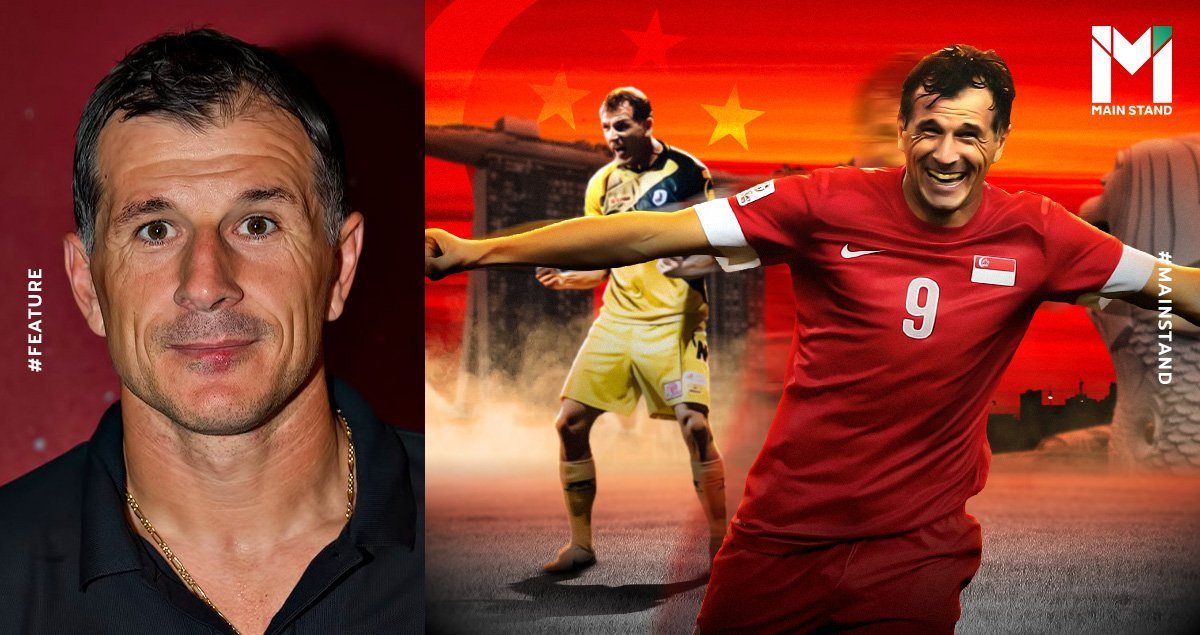
Although Singapore are already eliminated from the AFF Mitsubishi Electric Cup 2022, it’s not possible to talk about the competition’s final without mentioning the Lions.
The four-time champions are the only team with a perfect record in the final, as the last time Singapore won the title was over a decade ago.
Who was the man who played a vital role in that success?
Aleksandar Duric.
The former striker was one of Singapore’s naturalized players whose life, both on and off the pitch, has transcended unexpectedly through good and bad times.
Main Stand traces you back to Aleksandar Duric’s battle-scarred childhood in Yugoslavia to becoming Singapore’s football legend.
The first part of life in Yugoslavia
Yugoslavia was formed in 1918 under the Kingdom of Serbs, Croats and Slovenes. The country is said to be one of the most diverse European countries, regarding ethnicities, economy, culture, and religions.
Such diversity often led to many conflicts in the country. Demonstrations were common and those who were affected by them came out to protest as well.
Still, thanks to decades-long President Josip Broz Tito’s power and influence, most protests were limited and not far-reaching.
Also, Tito had been attempting to reunite the nation under “brotherhood and peace” through, for example, giving support to minorities to foster his political power throughout his reign.
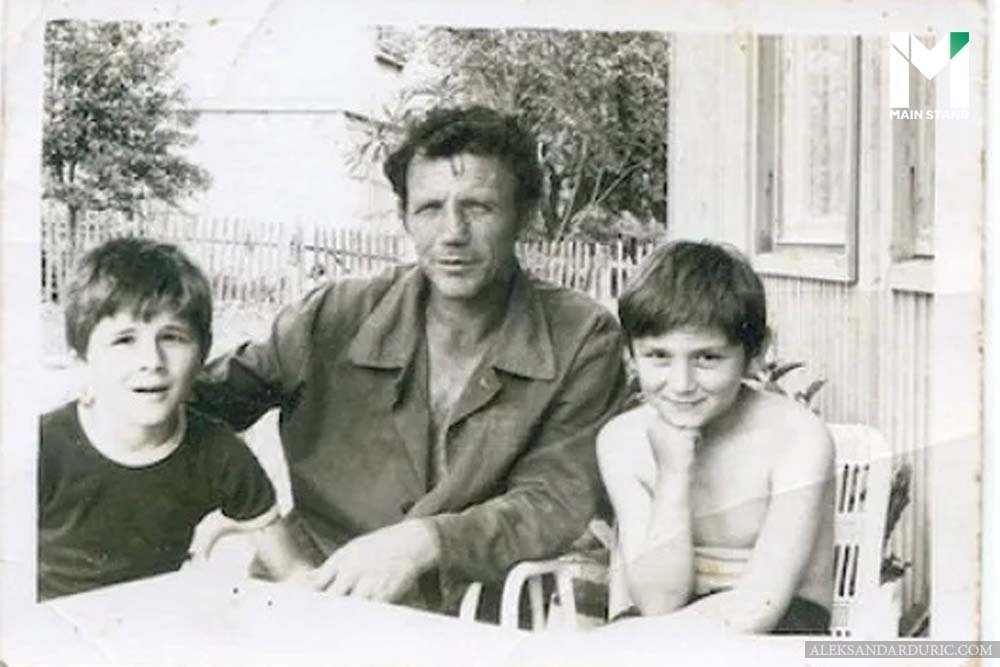
Aleksandar Duric was born into a deprived Serbian family, a major ethnic group of the country, in a small village in Doboj, situated in Bosnia and Herzegovina, a part of Yugoslavia back then.
Yugoslavia is another country renowned for its football both continental and global levels. Red Star Belgrade was Duric's favorite football team during his childhood. The side won the European Cup (currently UEFA Champions League) in 1991. At the global level, the Yugoslavia national football team even finished fourth in the 1962 World Cup, not to mention runners-up in the Euro 1960 and 1968.
Football is one of the first sports Duric practiced when he was around eight. It has been said that sometimes people even had to play football barefoot in winters which fell to -25 °C.
Believe it or not, the first sport he took seriously is not football, but canoeing instead. Because of the malformed bones in his chest, he had to take up such a sport to help with his medical condition. Also, there was a canoeing local team in his neighborhood.
Duric once stated that he hoped to be a canoeist even though he wasn’t able to swim. But thanks to determination and perseverance, he managed to be a canoeist at the age of 12, an indelible moment in his life.
“In Communist countries a big part of youth is sport and I was no different. Like any child in my hometown, we used to play football all the time, that’s how I had my first touch. We all used to dream about being athletes,” Duric told Max Matthews, a freelance sports journalist.
“It was accidental,” revealed Duric. “I was sick and the doctor told my parents it was best for me to pick up a sport to develop my chest.
“I lived near the canoeing club, a few of my friends were there already so I liked the idea of trying — but I didn’t know how to swim.
“Even though I grew up very close to rivers, in those days nobody really taught you how to swim, so my problem was when I went for the trial and the coach said I needed to show I could swim. I risked it and jumped in and I swam!
“I don’t know how but at the end of the day I joined the club.”
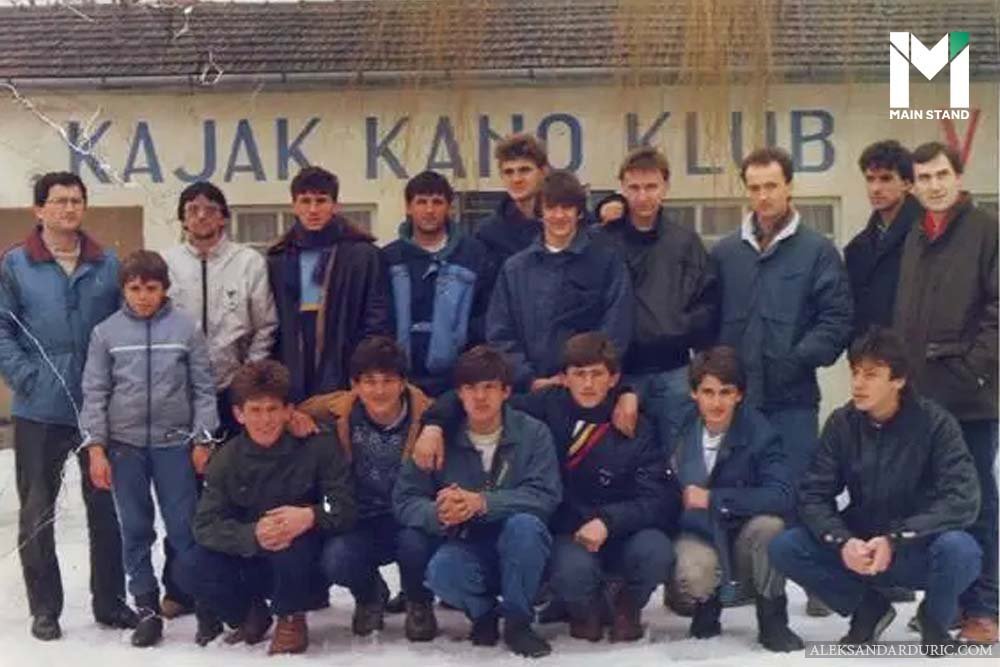
Aleksandar Duric’s canoe career was genuinely associated with “perseverance” as he first didn’t know how to swim, but he became Yugoslavia’s junior champion in the following three years. Five years later, Aleksandar Duric finished eighth in the Junior World Championships.
Unfortunately, due to chronic disintegration which had constantly been raging in Yugoslavia during Slobodan Milosevic’s office, Milosevic viewed that Serbia’s prowess had to thrive from the heart of the country, Belgrade. His political policies were the epitome of extreme nationalism which was central to ethnic Serbs, resulting in Yugoslav regions hoping to gain independence.
A refugee and an Olympian
Each region began to split, including Duric-hometown Bosnia after Slovenia successfully became an independent sovereign state in June 1991.
As Alexandar Duric was a Serb in Bosnia, his family was an ethnic group Milosevic supported. At first, Duric was drafted into the Yugoslav People’s Army.
Later on, he was called up to the reservist army at a military camp in Doboj, leading him to join wars in his early twenties inevitably.
He had no choice but to eliminate dissenters. Duric disapproved of crushing their lives only because of their disagreements. Also, his father wished either of his sons to move out of the country because he didn’t want to lose them in wars. In the end, Alexandar Duric managed to flee his native land.
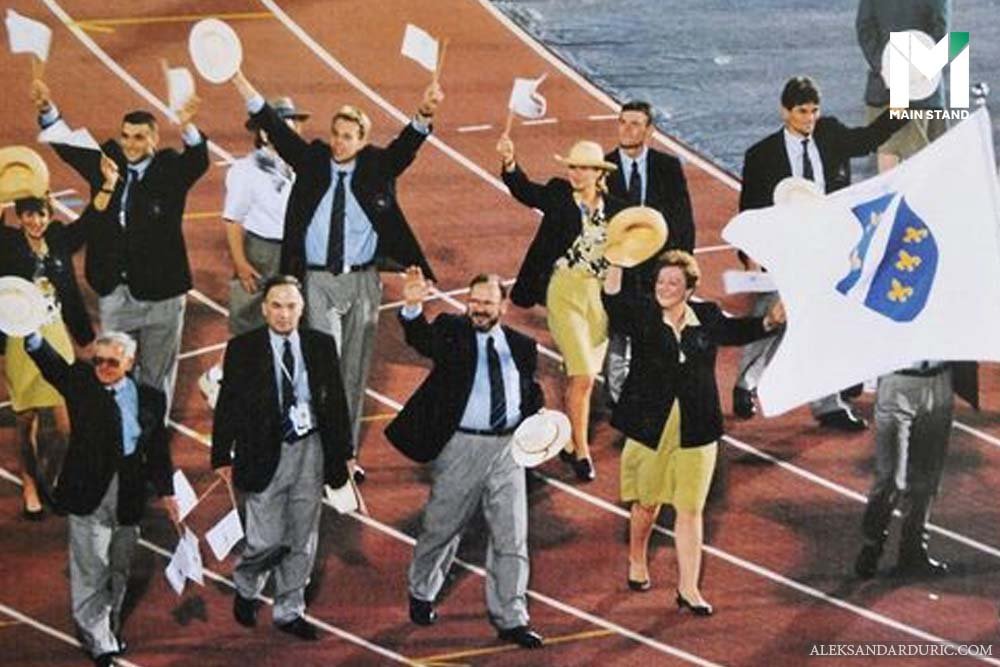
“After two days I realized it wasn’t my war,” Duric revealed.
“Talking to my father, he told me I needed to leave the country because he was scared and worried that he could lose both sons in the war. So I left the country in the early stages of 1992. That’s when I lost my first home.
“I illegally crossed the border and never looked back. There was huge pressure on a young me. I was basically left on my own in the middle of Europe with no state, no money, no language — to survive was really tough.”
As a refugee, Jusup Makarevic, Doboj canoeing club president, a Bosnian, an ethnic group that was belligerent to Serbs as a consequence of long-time racial hatred against one another, always offered him help as a stateless person in Hungary.
Here came another big moment in his life. In July 1992, he was reached out by the Olympic Committee of Bosnia and Herzegovina established in the same year to compete in the C-1 500m canoeing event at the 1992 Barcelona Summer Olympics.
As a consequence, Duric has become one of the first sportspersons that represent Bosnia and Herzegovina, leaving bloody civil wars behind. He hitchhiked his way from Hungary to Catalonia, 1,300 miles away, with a modest amount of money and a letter from the Olympic Committee of Bosnia and Herzegovina.
On the way to Catalonia, it was reported that a truck Duric rode on stopped at a checkpoint in Austria to receive thorough inspection as the immigration officers assumed that the group of people on the truck were refugees seeking asylum.
Thanks to his credentials, the officers realized Duric was a national athlete. Arriving at Barcelona empty-handed, Duric needed to borrow equipment from Italian and Spanish competitors.
Although he didn’t win any medals, this once-in-a-lifetime experience was what Duric took pride in the most.
“In 1992, my brother and my father were fighting against this (Bosnian) flag,” Duric told AFC.com
“To go to the Olympic Games was very much a hard decision for me, but I always believed, as a sportsman and a human being, that you don’t hate people because they are from different race or religion. That’s how my mother and father taught us. I went to the Olympics with a lot of pride, but I knew I would carry something for the rest of my life. It was a really difficult decision, but I don’t regret it all. I am proud to be one of the first Olympians for Bosnia-Herzegovina.”
Resume his football career
Duric decided to quit canoeing and kayaking because it didn’t earn him money. Coupled with his past experience and love for football, he managed to take another route as a result of his hard work.
During his stay in Hungary, Duric successfully qualified to join Szeged, a football team in his neighborhood, earning him his first professional contract at age 22.
Duric had been at Szeged for three seasons. During his stay at the club, he was confronted by bad news. He realized that his mother was killed in an artillery attack in his home country in 1993, four days before his 23rd birthday.
The loss of his beloved one, daily riots in his war-torn homeland, and his father and brother’s unavoidable fate of living amidst unrest reminded Duric not to return to Yugoslavia.
At the time, Szeged introduced Alexandar Duric to Frank Arok, South Melbourne's head coach. It was perfect timing because Arok was an Australia-grown Yugoslav. Meeting a “compatriot” has led him to bid farewell to Europe officially.
In 1995, Duric went to Australia under an immigrant visa. After the trial, he became a foreign player in Australia at South Melbourne under Arok.
Duric has successfully evolved into a professional footballer because of his determination. On top of that, he was a versatile player who could play any position. He could be a stopper, full-back, and midfielder. Not to mention, he also played for other clubs in Australia and had a brief stint in China.
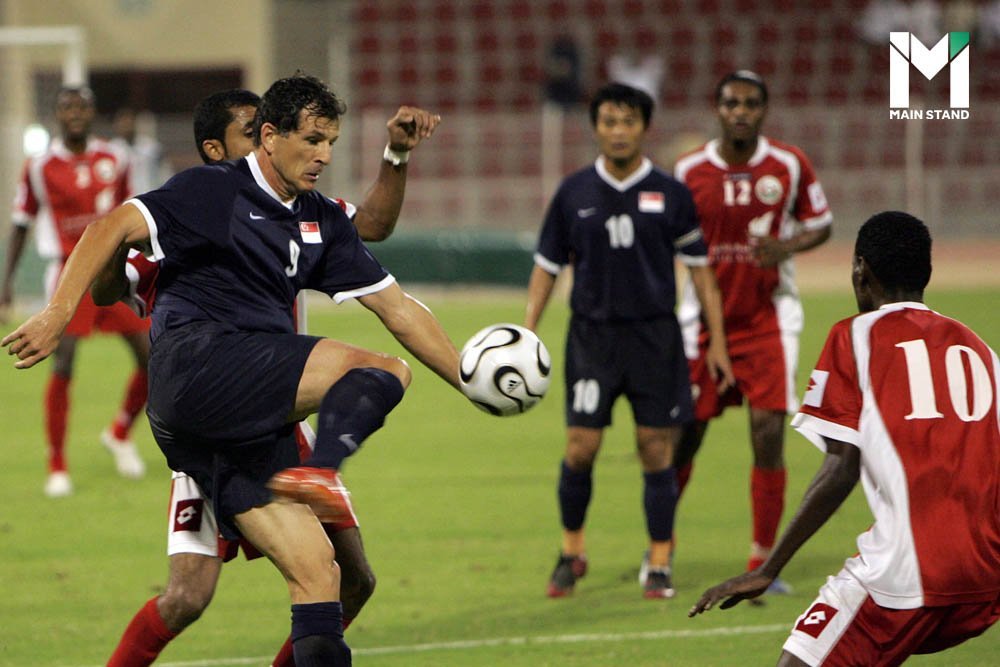
And the “door” to Duric’s new home was opened in 1999. At around the age of 30 when he was a free agent, his intimate Eddie Krncevic, former Australian star player, told him that Tanjong Pagar United, a football side in Singapore, was seeking a striker.
Truth be told, he never played as a striker and little did he know about the existence of a professional league in Singapore. Like many others, he pictured Singapore as a business-driven tiny island that became a developed country in a short time. By the time Singapore was regarded as a developed country, the football league had been founded for three years.
It is true that Duric questioned the S-League, but he didn’t miss out on a chance to face a new challenge. And he made the right decision as the rest of his spell in Singapore is history.
A brighter side in the land of the Merlion
Duric admitted that he had trouble acclimating to Southeast Asia’s extreme heat and humidity in the first two months. Worse still, he had to play as a forward. However, he never gave up, which was instrumental in his success in the following time.
Surprisingly, he made a great forward, thanks to his physique and near-superhuman strength, which brought his club a difference. Out of 16 matches at Tanjong Pagar United, Duric became the top scorer, amassing 11 goals and steering the side into finishing third place in the table.
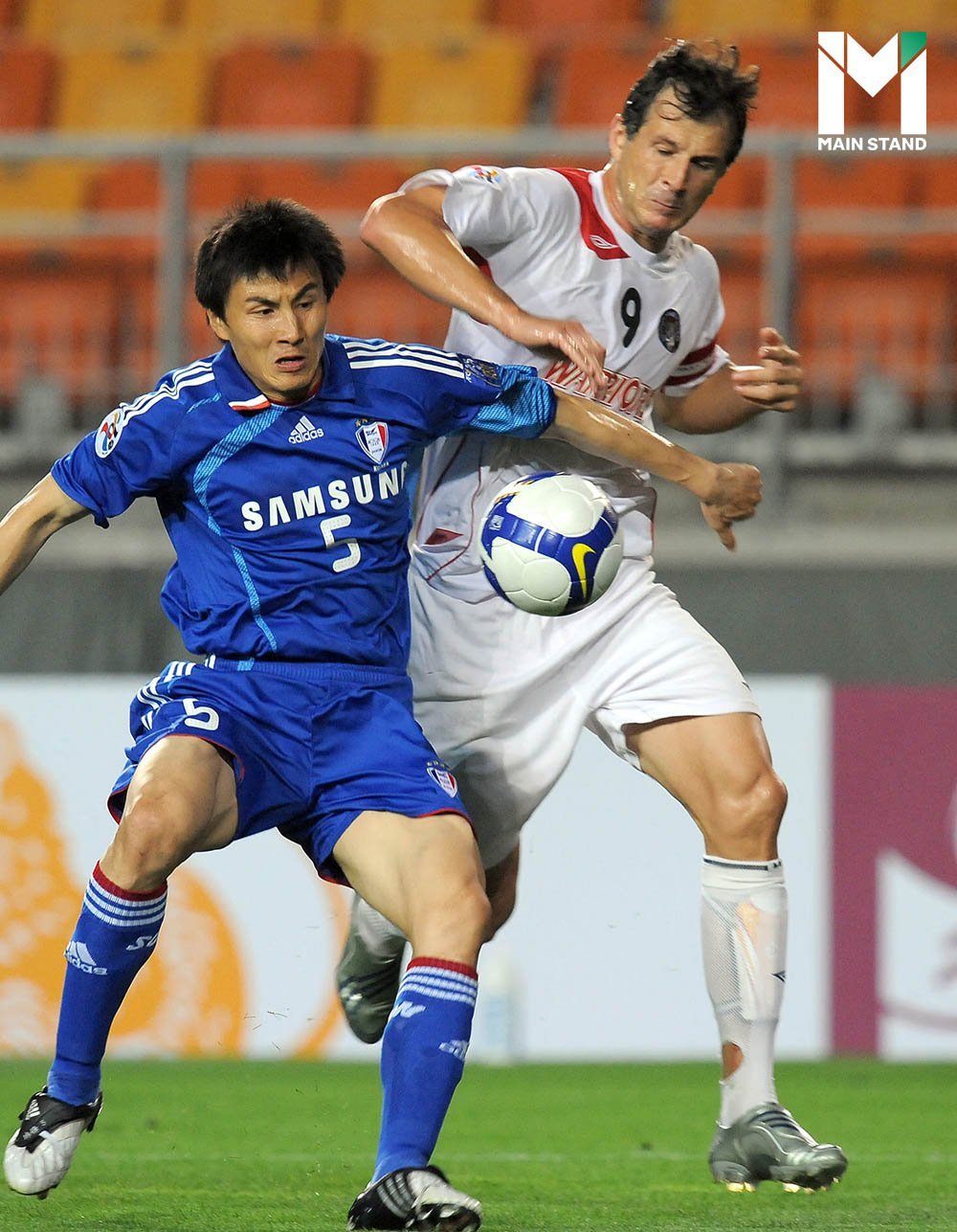
Fast forward 15 years later, the 192cm scoring machine’s distinguished abilities remained although he aged.
Whether he played for Home United (currently Lion City Sailors), Geylang International, Singapore Armed Forces, or Tampines Rovers, Alexandar Duric always propelled the teams into success, with an impressive tally of 376 goals.
He won eight S-League titles, three Singapore Cup wins, and four Golden Boot awards. Not to mention, he was a League Player of the Year thrice
The door to another home
Having lived in his adoptive country for a long time and giving birth to a daughter and a son in Singapore, the idea to have another home as a place they could spend quality time together crossed Alexandar Duric’s mind. And this prompted Duric to apply for citizenship.
Despite three successive attempts at Singaporean citizenship, his dream was eventually actualized. He managed to own another home and became a Singaporean citizen in 2007.
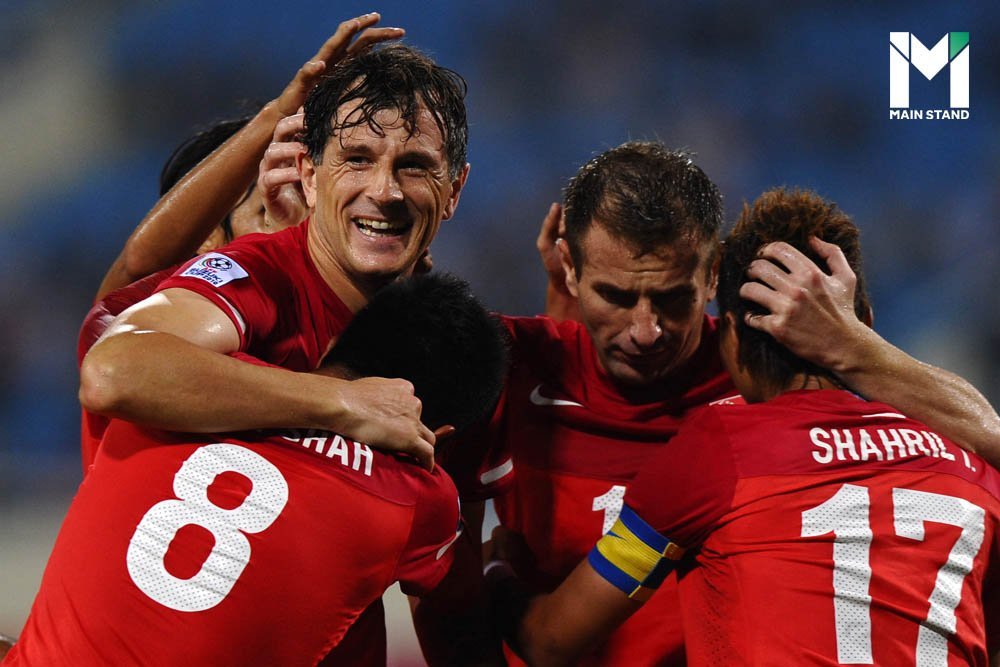
“After my daughter was born in 2002 and my son was born in 2004 here in Singapore, I realized there was one thing missing – a home. This is Singapore and this is my home. So I applied for my citizenship. I was rejected three times, but I never gave up. Finally, in 2007, I became a Singaporean citizen. I’ve had a lot of proud moments in my life, and I must say one of the biggest ones is to become a Singapore citizen,” Duric said with a great sense of pride.
Furthermore, in the same year, 37-year-old Alexandar Duric was called up for the Singapore national football team. It is believed to be a result of naturalization policies to follow through “Goal 2010” aiming at supporting Singapore in the World Cup, initiated by Goh Chok Tong in 1998.
Albeit unsuccessful, the policy leveled Singapore up to become a formidable team in ASEAN.
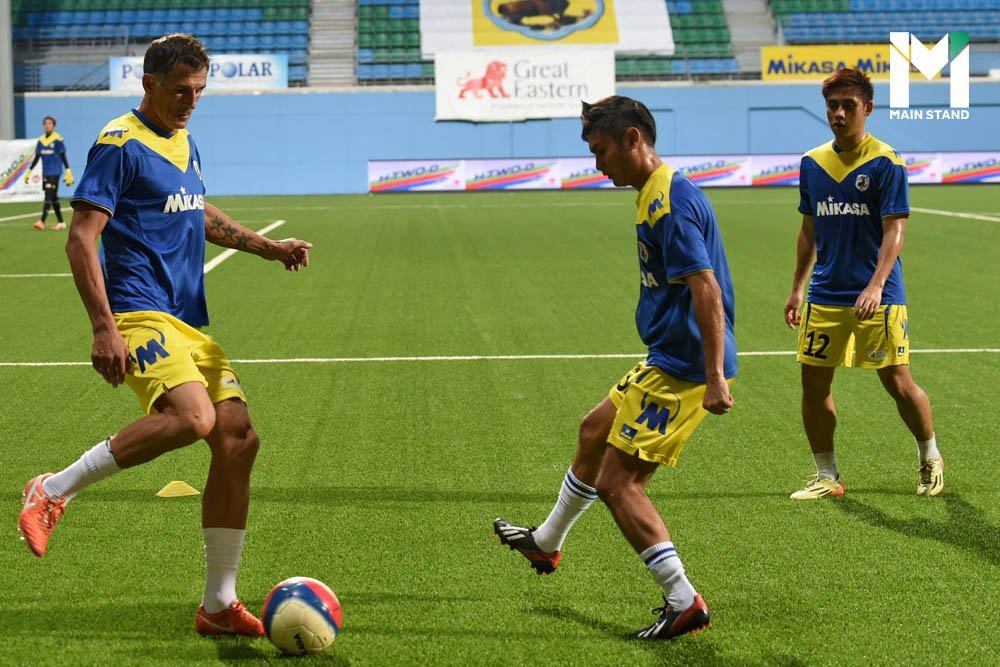
As a national player, Duric made a stunning debut, netting a brace in the 2010 World Cup Qualification, triumphing over Tajikistan 2-0.
From 2007-2012, he played for the Singapore national team, scoring 24 goals from 53 caps. He became the fifth all-time top scorer of the Singapore national football team. And the 2012 AFF Suzuki Cup is Duric’s triumph as a Singapore national player.
The European forward continued his football career until 44. In 2014, Duric hung up his boot. He is currently working in football with the government’s assistance and running a football academy for children aged 3-16 to repay Singapore for offering him and his family another home.
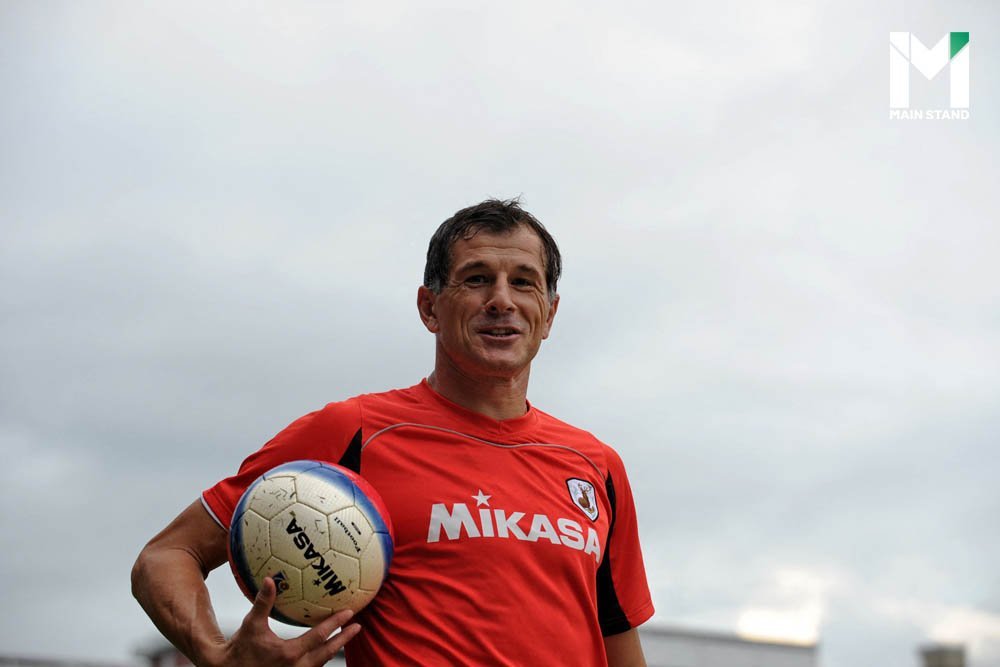
Earlier, his life has been rife with ups and downs and difficulties he had to overcome in his motherland, but now Alexandar Duric is a role model of a never-say-die person who is determined to burgeoning his skills and has become a football icon on the other side of the world.
Sources:
Book: Beyond Borders by Aleksandar Duric Book, with Glenn Wray, Singapore Football
https://en.wikipedia.org/wiki/Aleksandar_%C4%90uri%C4%87
https://en.wikipedia.org/wiki/Singapore_national_football_team
https://www.the-afc.com/en/more/news/my_asian_home_-_aleksandar_duri%C4%87.html
https://www.footballparadise.com/aleksandar-duric/
https://youtu.be/f37D19IYSD0
https://fansided.com/2021/02/09/aleksandar-duric-soccer-story/
https://web.archive.org/web/20160305021629/http://www.menshealth.com.sg/guy-wisdom/mh-interview-aleksandar-duric

